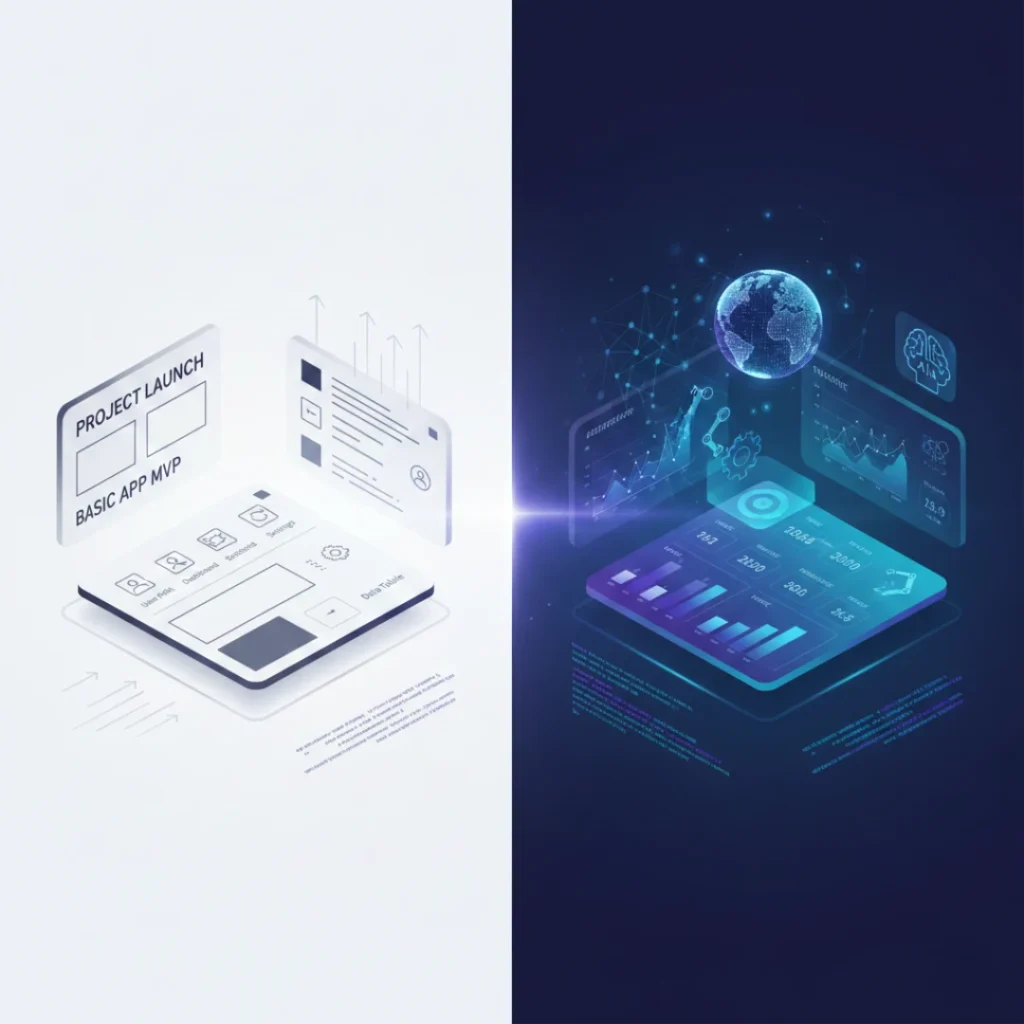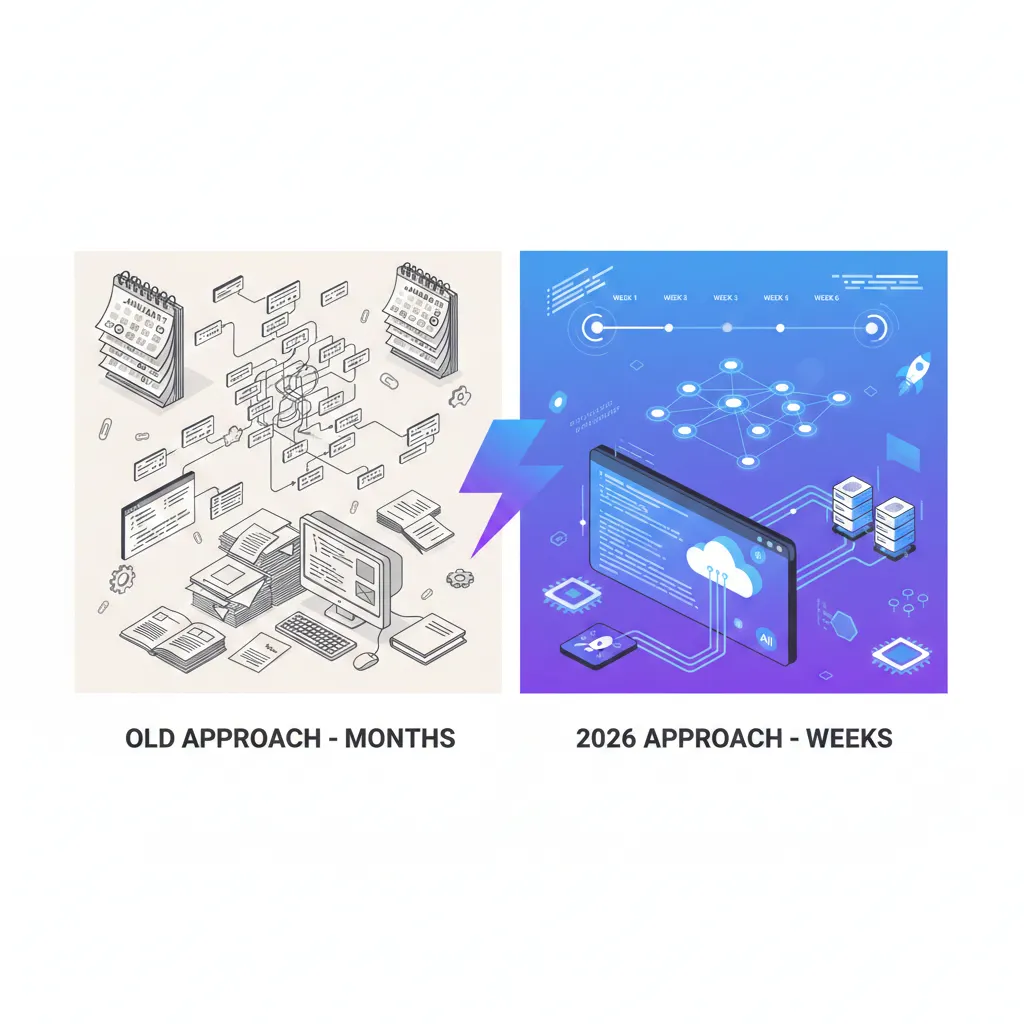Intelligent AI agents are revolutionizing how businesses operate, moving beyond simple chatbots to create truly autonomous systems that think, learn, and act independently. As organizations worldwide recognize the transformative potential of intelligent automation, the demand for professional intelligent AI agent development has reached unprecedented levels.
Unlike traditional software that follows predetermined scripts, intelligent AI agents can perceive their environment, make complex decisions, and execute actions without constant human oversight. These sophisticated systems are helping businesses automate knowledge-based tasks, improve customer experiences, and drive operational efficiency across industries.
Why Businesses Are Investing in Intelligent AI Agent Development
The shift from reactive to proactive AI represents a fundamental change in how organizations approach automation. Traditional systems wait for commands, but intelligent AI agents actively monitor situations, identify opportunities, and take initiative to solve problems before they escalate.
Real-time decision making capabilities enable these systems to process vast amounts of data instantly and respond to changing conditions faster than human teams. This speed advantage translates directly into competitive benefits, whether optimizing supply chains, managing customer relationships, or monitoring business operations.
Cost reduction through automation occurs when intelligent AI agents handle tasks that previously required significant human resources. Companies implementing these systems typically see 40-60% reductions in operational costs while maintaining or improving service quality.
24/7 operational capacity allows businesses to provide continuous service without the limitations of human work schedules. Intelligent AI agents never need breaks, don’t get tired, and can handle multiple complex tasks simultaneously.
Types of Intelligent AI Agents for Business Applications
Customer service agents represent one of the most successful applications of intelligent AI technology. These systems can understand complex customer inquiries, access relevant information from multiple sources, and provide personalized solutions while escalating issues to human agents when necessary.
Process automation agents streamline business workflows by monitoring systems, identifying bottlenecks, and automatically implementing solutions. These agents excel at handling repetitive tasks while adapting to variations and exceptions that would challenge traditional automation.
Data analysis agents continuously process information from various sources to identify trends, anomalies, and opportunities. Unlike static reports, these systems proactively alert stakeholders to important changes and recommend specific actions based on their analysis.
Predictive maintenance agents monitor equipment and systems to predict failures before they occur. By analyzing sensor data, historical patterns, and operational conditions, these agents help organizations avoid costly downtime and optimize maintenance schedules.
The Business Case for Custom Intelligent AI Agent Development
Off-the-shelf AI solutions often fail to address specific business requirements, industry regulations, or unique operational contexts. Custom intelligent AI agent development ensures these systems align perfectly with organizational goals, existing infrastructure, and compliance requirements.
Industry-specific intelligence becomes crucial when agents must understand specialized terminology, regulatory constraints, or domain-specific workflows. Healthcare organizations need agents that understand medical protocols, while financial institutions require systems that comply with banking regulations.
Integration capabilities determine how effectively intelligent AI agents can work within existing technology ecosystems. Professional development ensures seamless connectivity with databases, APIs, and enterprise software systems.
Scalability planning addresses how agents will perform as business volume grows and requirements evolve. Expert developers design architectures that can expand capabilities without requiring complete system rebuilds.
Essential Features of Enterprise-Grade Intelligent AI Agents
Multi-modal communication allows these systems to interact through text, voice, images, and structured data formats. This flexibility enables agents to work across different platforms and user preferences while maintaining consistent service quality.
Context awareness helps intelligent AI agents understand situational nuances and maintain coherent conversations across multiple interactions. These systems remember previous exchanges, understand user preferences, and adapt their responses accordingly.
Security and compliance frameworks protect sensitive information while ensuring agents operate within regulatory boundaries. Enterprise implementations require robust authentication, data encryption, and audit trails to meet industry standards.
Performance monitoring and optimization capabilities enable continuous improvement through analytics and feedback loops. Advanced agents track their own performance, identify areas for enhancement, and automatically adjust their behavior to improve outcomes.
Implementation Strategy for Intelligent AI Agent Development
Assessment and planning begins with thorough analysis of current business processes, pain points, and automation opportunities. Successful implementations start by identifying specific use cases where intelligent AI agents can deliver measurable value.
Proof of concept development allows organizations to validate agent capabilities in controlled environments before full-scale deployment. This approach minimizes risk while demonstrating potential benefits to stakeholders.
Iterative deployment introduces agents gradually, starting with less critical tasks and expanding capabilities as systems prove their effectiveness. This methodology ensures smooth integration while building organizational confidence in AI automation.
Change management support helps teams adapt to working alongside intelligent AI agents. Successful implementations include training programs, process documentation, and ongoing support to maximize adoption and effectiveness.
Advanced Capabilities Driving Intelligent AI Agent Innovation
Natural language understanding has evolved beyond simple keyword matching to true comprehension of intent, context, and nuance. Modern agents can interpret complex requests, understand implied meanings, and respond appropriately to ambiguous instructions.
Computer vision integration enables agents to process and analyze visual information, from document scanning to quality control inspections. This capability expands automation possibilities into traditionally manual domains.
Predictive analytics allow intelligent AI agents to anticipate future events and take proactive measures. These systems can forecast demand, predict customer behavior, and identify potential problems before they impact operations.
Multi-agent coordination creates teams of specialized agents that collaborate to handle complex, multi-faceted challenges. This approach mirrors human team structures while leveraging the unique advantages of AI systems.
Measuring ROI from Intelligent AI Agent Implementation
Operational efficiency metrics track how agents reduce processing time, eliminate manual tasks, and improve resource utilization. Organizations typically measure completion rates, error reduction, and time savings to quantify automation benefits.
Customer satisfaction improvements result from faster response times, more accurate information, and consistent service quality. Intelligent AI agents can handle routine inquiries instantly while ensuring complex issues receive appropriate human attention.
Cost savings calculations include reduced labor expenses, decreased error correction costs, and improved resource allocation. Most organizations achieve positive ROI within 6-12 months of intelligent AI agent deployment.
Competitive advantages emerge from faster time-to-market, improved service capabilities, and enhanced operational agility. These benefits often prove more valuable than direct cost savings in dynamic market environments.
Choosing the Right Development Partner for Intelligent AI Agents
Technical expertise in machine learning, natural language processing, and systems integration determines the quality and capabilities of resulting intelligent AI agents. Look for developers with proven experience in artificial intelligence development and a track record of successful enterprise implementations.
Industry experience becomes crucial when agents must understand specific business contexts, regulatory requirements, and operational constraints. Partners with relevant domain knowledge can accelerate development timelines and improve system effectiveness.
Development methodology affects project success, timeline predictability, and long-term maintainability. Professional teams employ agile approaches, comprehensive testing frameworks, and detailed documentation to ensure project success.
Post-deployment support ensures intelligent AI agents continue performing optimally as business needs evolve. Ongoing maintenance, performance optimization, and capability expansion require dedicated technical partnerships.
Future Trends in Intelligent AI Agent Technology
Edge computing integration enables agents to process information locally, reducing latency and improving privacy protection. This trend particularly benefits organizations with real-time requirements or data sensitivity concerns.
Federated learning allows multiple agents to share knowledge while maintaining data privacy. This approach enables rapid capability improvement across agent networks without compromising security.
Autonomous orchestration represents the next evolution, where agents coordinate complex business processes end-to-end. These systems will manage entire workflows, making decisions and adjustments without human intervention.
Explainable AI development addresses the need for transparent decision-making in regulated industries. Future agents will provide clear explanations for their actions, supporting compliance and building stakeholder trust.
Getting Started with Intelligent AI Agent Development
The journey toward intelligent automation begins with understanding your organization’s specific challenges and opportunities. Professional development teams can assess your current processes, identify high-impact use cases, and design custom solutions that align with business objectives.
Initial consultation helps clarify requirements, establish success criteria, and develop implementation roadmaps. Experienced developers bring industry insights and technical expertise to ensure projects start with solid foundations.
Pilot projects validate concepts and demonstrate value before large-scale investments. These focused implementations allow organizations to experience intelligent AI agent capabilities while building internal expertise.
Scalable architectures ensure initial investments grow with your business. Professional development creates systems that can expand capabilities, handle increased volume, and integrate with future technologies.
Ready to transform your business operations with intelligent AI agents that think, learn, and act autonomously? Contact our AI development team to discuss how custom intelligent AI agent solutions can drive efficiency, reduce costs, and create competitive advantages for your organization.
Frequently Asked Questions
Intelligent AI agents are autonomous systems that can think, learn, and take independent actions to achieve goals, while regular chatbots simply respond to predefined prompts. AI agents can perceive their environment, make complex decisions, and adapt their behavior over time without human intervention. They proactively identify problems and opportunities, whereas chatbots wait for user input and follow scripted responses.
Custom intelligent AI agent development typically takes 8-16 weeks depending on complexity and requirements. Simple automation agents can be completed in 6-10 weeks, while comprehensive enterprise systems with multiple integrations may require 12-20 weeks. The timeline includes planning, development, testing, and deployment phases. Most clients see initial functionality within 4-6 weeks through our iterative development approach.
Organizations typically achieve 40-60% cost reduction within 6-12 months of intelligent AI agent deployment. Additional benefits include 24/7 operational capacity, faster decision-making, and improved service quality. Most clients see positive ROI within the first year through reduced labor costs, eliminated manual errors, and increased operational efficiency. Healthcare and finance sectors often see higher returns due to compliance automation.
Yes, intelligent AI agents benefit from regular monitoring, performance optimization, and capability updates. While these systems learn and adapt automatically, periodic maintenance ensures optimal performance as business needs evolve. We provide comprehensive support including monthly performance reviews, quarterly updates, and continuous improvement based on usage patterns and feedback. Most maintenance can be handled remotely without business disruption.
Absolutely. Professional intelligent AI agent development includes seamless integration with existing databases, APIs, CRM systems, and enterprise software. Our development process includes thorough analysis of your current technology stack to ensure compatibility. Agents can connect with popular platforms like Salesforce, Microsoft Office 365, SAP, and custom applications through secure API connections and data synchronization.
Healthcare, finance, manufacturing, and customer service industries see the highest returns from intelligent AI agents. Healthcare benefits from patient monitoring and compliance automation, finance from fraud detection and risk assessment, manufacturing from predictive maintenance, and customer service from 24/7 support automation. However, any industry with repetitive processes, data analysis needs, or customer interaction requirements can benefit significantly.
Enterprise-grade intelligent AI agents include robust security frameworks with data encryption, secure authentication, and compliance with industry standards like HIPAA, GDPR, and SOC 2. All data processing can be done locally or in secure cloud environments with access controls and audit trails. We implement role-based permissions, regular security updates, and comprehensive monitoring to protect sensitive information throughout the agent’s operation.




